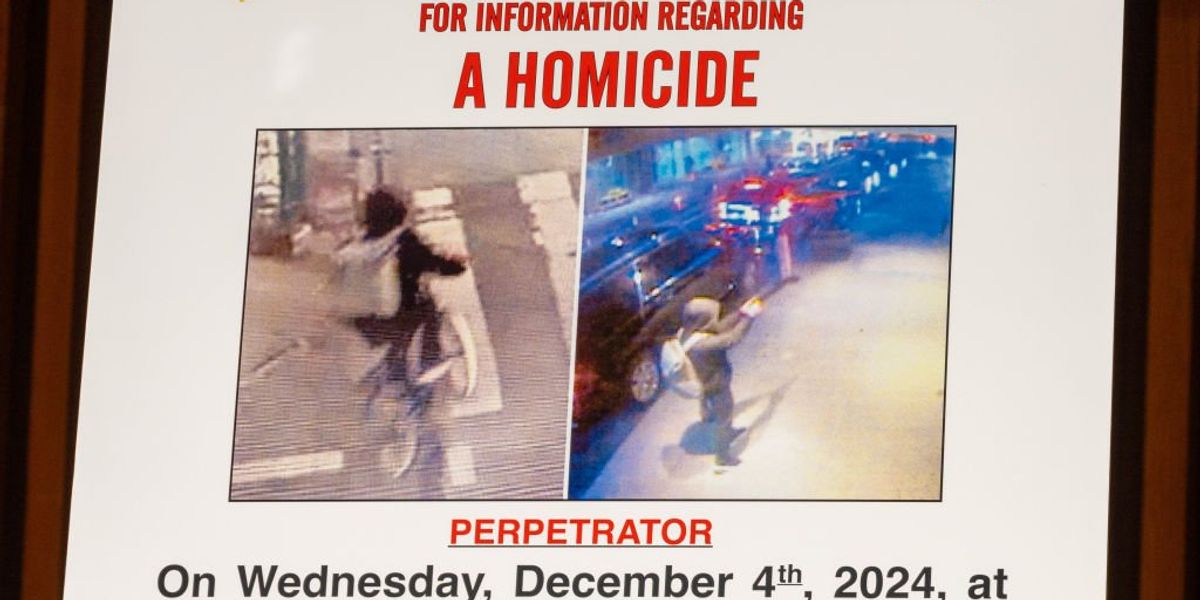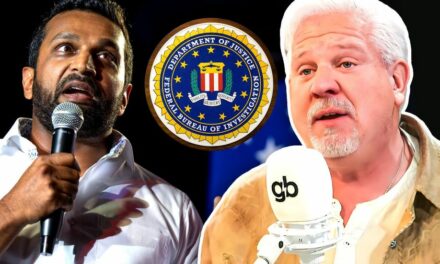We support our Publishers and Content Creators. You can view this story on their website by CLICKING HERE.

Brian Thompson, the CEO of UnitedHealth Group, was fatally shot Wednesday morning outside of his New York City hotel in what police have described as a premeditated, targeted attack. The 50-year-old CEO was shot multiple times by a masked gunman who had been waiting outside the Hilton hotel along Sixth Avenue, where the Thompson was hosting an investors’ conference. According to his wife, Thompson had received threats, and the bullet casings recovered at the crime scene had a personalized message hand-engraved on the shells: “deny,” “depose,” and “defend.”
This chilling event raises serious concerns — not just about security but about the rising tide of disillusionment and rage in our society.
We must resist the temptation to take shortcuts to justice. Instead, we need to demand better from our leaders, our institutions, and ourselves.
For years, I’ve warned about the potential for chaos when people lose faith in institutions. Back in 2010, while on Fox News, I vividly recall saying that the very people enabling today’s revolutionary rhetoric would one day find themselves dragged into the streets by mobs and beaten to death on live television.
It sounded dramatic then. Now, it feels prophetic.
The purpose of government
The crumbling of faith in our institutions is largely due to our willful ignorance of the very purpose of our government. Unlike governments throughout history, ours wasn’t designed merely to enforce laws or keep the peace. The Declaration of Independence boldly asserts that governments are instituted among men to protect our unalienable rights — life, liberty, and the pursuit of happiness. These rights aren’t granted by any king, congress, or court; they are inherent.
The founders understood something critical: When governments become hostile to those rights — when they oppress rather than protect — it is not just the right but the duty of the people to replace them. However, the Declaration also offers a sobering reminder: People are often more willing to endure suffering than to risk the unknown.
This principle resonates deeply with me. As a recovering alcoholic, I know the temptation to stick with the devil you know. I lived in the pain of addiction for years, afraid that sobriety might only reveal my worst fears: that I was irredeemable, unworthy of anything better. But when the pain became unbearable, I was forced to take the leap.
America is at a similar inflection point.
Pain breeds change — but it must be lawful
We’re living in a time of immense collective pain — pain exacerbated by COVID-19, economic instability, and institutional corruption. Many Americans are willing to embrace the unknown, as we witnessed in this past election. Cohorts from the left moved across the aisle to support Donald Trump. That willingness is a sign of desperation — and an opportunity for renewal.
But it’s also dangerous. The Declaration of Independence was never a call to mob violence or vigilante justice. It was a framework for lawful, peaceful change. America’s founders understood that revolutions driven by hatred and chaos destroy justice rather than uphold it.
When institutions fail — and make no mistake, they have failed — it’s easy to see why people might turn to violence as an outlet for their anger. Marxist revolutionaries, anarchists, and disillusioned citizens will be tempted to act as judge, jury, and executioner. We’ve seen this before in history, from the French Revolution to the riots that followed George Floyd’s death.
But let me ask you: Is shooting someone in the street justice? Even if the victim is guilty — say, a corrupt pharmaceutical executive exploiting the vulnerable — is killing him how justice works?
Justice isn’t about vengeance. It’s about accountability. It requires evidence, due process, and impartiality. Mob justice, on the other hand, tears at the fabric of our society. It replaces the rule of law with chaos and ensures that no one, rich or poor, is truly safe.
A dangerous pattern emerging
Brian Thompson’s murder may be just the beginning of a disturbing trend. As faith in institutions erodes, more people will take matters into their own hands, targeting pharmaceutical executives, health care leaders, and others they perceive as symbols of corruption. This is not justice. It’s anarchy disguised as righteousness.
If we succumb to this mindset, we lose the very principles that make America worth defending. Our nation’s strength lies in its commitment to reasoned debate, lawful protest, and a system where justice is blind.
We must resist the temptation to take shortcuts to justice. Instead, we need to demand better from our leaders, our institutions, and ourselves. The pain we feel as a nation is real, but if we channel it constructively, it can lead to meaningful reform.
The Declaration of Independence gave us the blueprint: a vision for building something greater, not tearing everything apart. It’s up to us to follow that example — with prudence, reason, and care.
This isn’t just about one man’s tragic death. It’s about whether we will uphold the principles of justice or descend into chaos. The choice is ours.
Want more from Glenn Beck? Get Glenn’s FREE email newsletter with his latest insights, top stories, show prep, and more delivered to your inbox.

 Conservative
Conservative  Search
Search Trending
Trending Current News
Current News 







